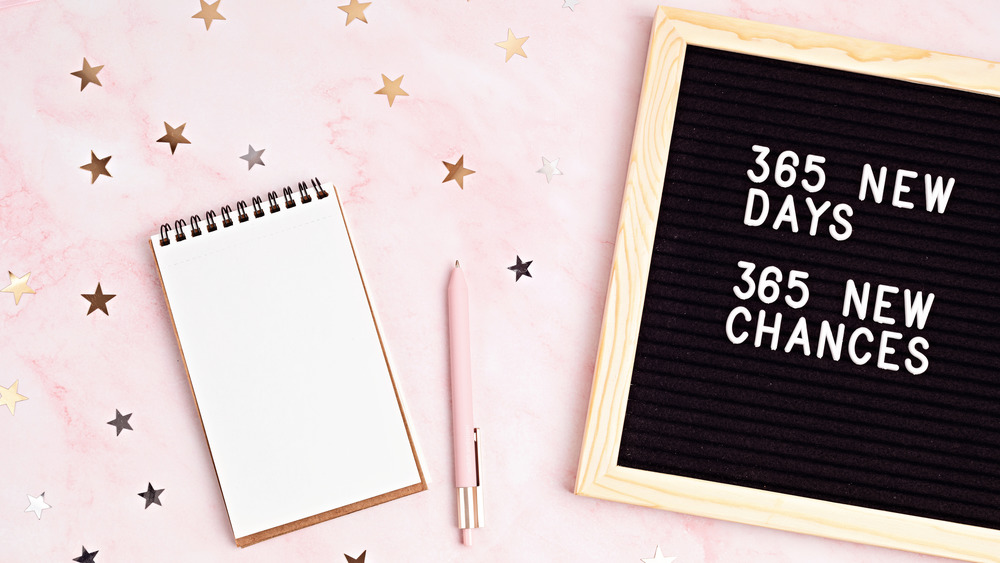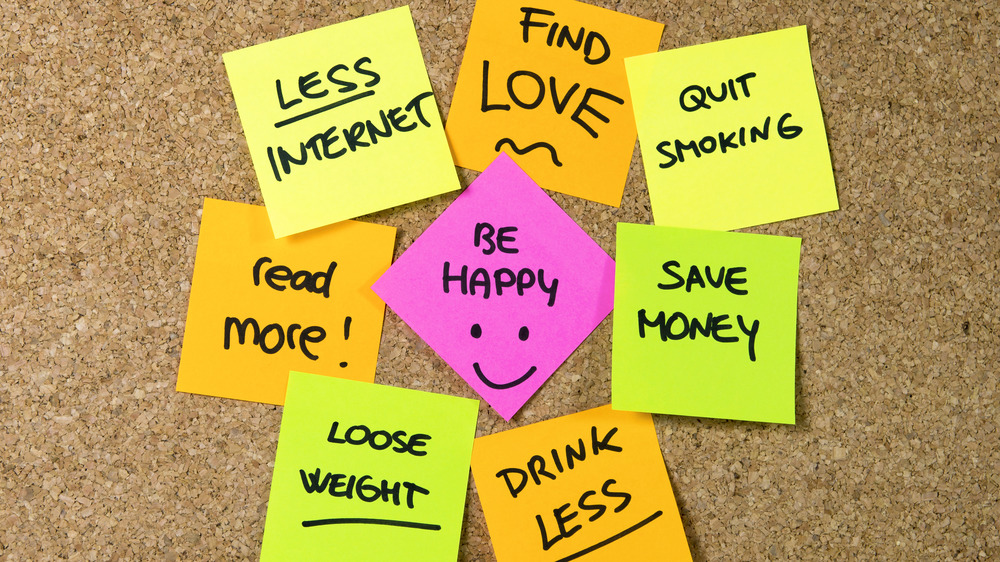The Science Behind Developing And Changing Your Habits
On the eve of each new year, people around the world shout from the rooftops, or in 21st-century fashion, from their social media accounts, the adage "New Year, New Me!" While it's meant to give us hope that we could finally "live our best life" and make "this year our year," there is a lot more that goes into sticking to or changing your habits.
A recent Swedish study published in PLOS One looked at the types of New Year's resolutions people made and if it was possible to increase the success of resolutions if participants were given information and exercises on effective goal setting. They yielded some pretty interesting results. From 1,066 participants, the five most popular resolutions, goals, or habits had to do with: improving physical health, weight loss, eating habits, self-improvement, and mental health and sleep, in that order. Researchers found that nearly 59 percent of participants considered themselves successful at sticking to their resolutions when they set "approach-oriented resolutions" as opposed to 47 percent who set "avoidance-oriented" resolutions.
Approach-oriented goals simply mean that when you create a new resolution, intention, or habit, you think about and word it in terms of approaching something. For example, "I would like to lose 10 pounds this year" or " I plan on cooking three meals at home per week." This differs from "avoidance-oriented" resolutions which would sound more like, "I want to quit sugar and lose ten pounds," or "I want to avoid take-out meals three times per week."
Be realistic about your habits and goals
In addition to thinking about your new habit positively, an article from the British Journal of General Practice recommends setting a goal, developing a plan to accomplish it, and then celebrating the new habit. Often times people become discouraged if they are unable to perform their habit one day. John Norcross, chair of psychology at the University of Scranton, tells CNN, "Don't let a slip become a fall." So instead of falling into the "Abstinence Violation Effect" which describes the feeling of "forget it, I messed up already, it's over," researchers recommend normalizing that you will inevitably, at some point, not stick to your habit for one day or even a few days. The most important thing is to start back up again.
To improve habit success, changing your habits shouldn't occur only at the start of January, but rather, is something you should do periodically (via Verywell Mind). If the year 2020 taught the world anything, it's that you can plan and envision the year you want to have, but on the drop of a dime, that could all change. That's why reassessing your goals and habits periodically is beneficial in the long run. You want to ensure that your goals are still realistic and relevant, and if they are not, you adapt.
So if you're determined to pick up some new healthier habits, start with things that really matter to you, start gradually, and remember that messing up every once in a while is totally normal, just keep going!


